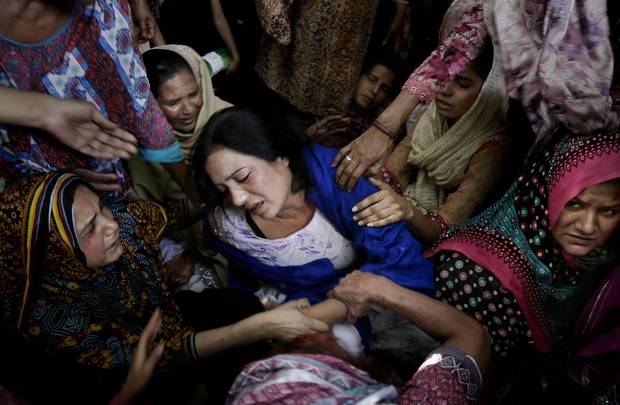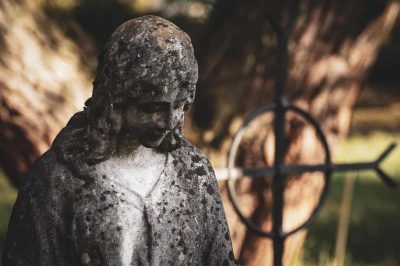Q: Has the Resurrection made Death our friend? (pt 4/4) Brad Jersak
This article completes our series on the question of whether or not Death is now our friend (click here to begin at part 1). So far, we’ve seen that while we must all pass through a process of dying that culminates in the event or moment of death, the resurrection of Christ radically changed the nature of death itself. It is no longer a destination or destiny to be feared in some dreary grave or gloomy underworld. Death in that sense has died and dying is a transition into the joy of the Lord.
In this article, we explore surrender: a posture towards disease, dying and death: 
What if we never have to discern when it’s time to surrender a loved one to death because instead, we can surrender them into the arms of Christ in life and in death. Isn’t surrender already inherent in our prayers before disease, before dying, before death?
We never need to surrender to disease, dying or death because our surrender is always only to Christ. We don’t need to figure out when to transition from fight-mode against the disease into acquiescence towards death. And we don’t need to discern when it’s time to despair, because we never do. I give my healthy children into God’s care all the time; I offer my sickly mother into his care all the time. I surrender my dying grandma into his care as I always have … with an openness and expectancy that “surrender to his care” always gives them the best odds at a divine healing or a medical success, while also enjoying the maximum sense of God’s loving presence when they battle disease and experience dying.
In my experience, the tension between fighting for a healing or accepting and processing the grief of dying can be unbearable and leave us double-minded. Those who want to maintain an atmosphere of healing often lapse into denial and try to approach healing faith through a sort of spiritual wilfulness that we mistake for faith or authority. The one who is sick or dying feels emotionally abandoned, shamed or even refused permission to experience the reality of their pain.
On the other hand, those who have simply despaired of life or are afraid to pray for healing may also leave the sick or dying feeling a similar sense of isolation. Their fate is sealed and they are abandoned to their disease and despair. Either can be worse than dying.
Presence: a much more life-giving path. The first order of business seems to be presence. Our presence in their situation, to their pain, to their needs. And embodying “God’s felt presence” throughout the journey, whether that looks like a pathway to healing or the pathing through dying and into God’s arms. The way we practice this presence is through attention, openness and receptivity to the presence of Emmanuel—God with us.
When we have practiced that posture of expectancy, we occasionally see dramatic healing—not often, but far more frequently than when we wore out dying friends by shouting faith declarations and authoritative commands (or demands)!
More importantly and more often, when we stay present and attentive to the sick and the dying AND to God’s nearness to us, the dying don’t feel abandoned and we don’t heap shame and striving onto the unhealed and their loved ones. We need not flip-flop between fighting and despair, because it’s all about surrender to embracing both human and divine presence. More than that, we need not worry about whether death is an enemy or a friend. Instead, we focus on the presence of the living Christ with us through every experience.











 Plain Truth Ministries | Box 300 | Pasadena, CA 91129-0300
Plain Truth Ministries | Box 300 | Pasadena, CA 91129-0300

